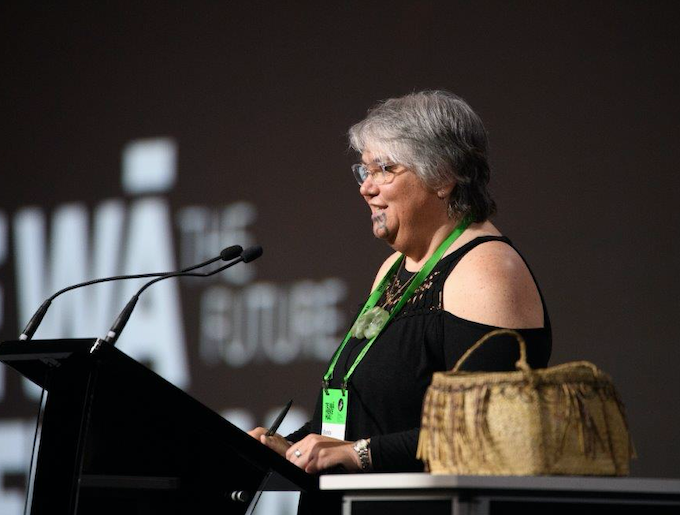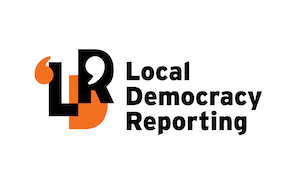
By Moana Ellis, Local Democracy Reporter
A district mayor says the Aotearoa New Zealand local government sector is ready to launch into a future that embraces more youthful members, Māori and climate change action.
Whanganui mayor Hamish McDouall said the Local Government New Zealand (LGNZ) annual conference underway in Palmerston North had “launched our heads into the future”.
McDouall, the vice-president of LGNZ, said yesterday the hot topics were the changing face of elected membership, partnership with Māori and climate change.

“The clear message is about the future. The future is going to change. It is about youth involvement and embracing hapū and iwi.
“With the next generations’ birth rates significantly higher for Māori than Pākehā, co-governance arrangements and those kind of things just have to be in place.
“The exciting thing about today is you can tell that local government is wanting change, ready for change.”
The sector could not ignore the climate change crisis, McDouall said.
Climate deniers ‘on wrong planet’
“If there’s any climate change denier out there, you’re on the wrong planet. Local government needs to get more active and make bold decisions.
“Any decision we make proactively now is going to make it less difficult to adapt in 10 years. We’ve just got to do things now.
“I have climate change sceptics on my council but anyone entering local government should understand this is the crisis for the rest of our lives.”
The third burning issue at the conference was rating, McDouall said.
“Rates don’t work as a funding tool alone – that’s why Three Waters is happening, because we simply can’t afford it.”
Thirty-five councils across the country will have Māori wards at this year’s local body elections, 32 of them for the first time.
Te Maruata collective ‘thrilled’
Bonita Bigham, chair of the sector’s Māori collective Te Maruata, said the network was thrilled to be welcoming more than 50 new Māori ward members into the sector in October.
Te Maruata spent a day together before the main conference began on Wednesday.
“We were thrilled — really thrilled — for the first time ever to have at least six Māori mayoral candidates in the room,” Bigham said.
But she said it was clear that the council environment does not support Māori elected members. The results of a survey of elected members released by LGNZ this week revealed that half the respondents have experienced racism, gender discrimination and other harmful behaviour.
“So [on Tuesday] we launched Te Āhuru Mōwai, a tuakana-teina initiative which will enable Māori members on any council to reach out into our collective strength and experience for guidance and support,” Bigham said.
In his president’s address, Stuart Crosby said local councils must build relationships and partnerships with all sectors of the community, including tangata whenua.
“It’s not about power and control anymore. It’s all about partnership. We cannot serve our communities and do our jobs justice if we don’t partner with mana whenua.”
Most diverse sector
Far North District councillor Moko Tepania, co-chair of LGNZ’s Young Elected Member (YEM) network, told the conference that “YEMs” represent the most diverse sector of local government.
“That gives an indication of how different local government will look in the future compared to today and the past,” he said.
Tepania, 31, is running for the Far North mayoralty in October’s elections. If successful he’ll be the youngest ever Far North mayor. He was elected as a Kaikohe-Hokianga Ward councillor at the last local government election in 2019.
Ruapehu District’s youngest councillor Elijah Pue is also running for mayor. At 28, he, too, would be the youngest mayor ever elected in his district if successful. He was elected as a Waimarino-Waiouru Ward representative in 2019.
Pue said yesterday co-governance and partnership were being openly and frankly discussed.
“How do we embody the principles of Te Tiriti o Waitangi in a way that allows councils to focus on community wellbeing, and partnerships and relationships for the betterment of our mokopuna?
“We want meaningful change in our communities. Our outlook no longer needs to be for a 10-year long-term plan, it actually needs to be for a thousand-year generational outlook.
Future-focused leadership
“We need future-focused leadership that doesn’t dwell on the past. We need younger, more diverse, more future-focused leadership that puts our grandchildren, born or unborn, at the forefront of our decisions.”
Fellow Ruapehu mayoralty contender, councillor Adie Doyle, said the clear thrust of the conference was that youth and Māori would have greater input into local government.
“It’s just the way the population statistics are going. The importance of partnerships and working together – some people call it co-governance – is a key takeaway.
“These conferences are designed to challenge your thinking. You come away with maybe a different perspective.
“I support the principle of partnerships, but they have to be fit for purpose, and not all partnerships need to be equal – it’s about working together for the benefit of both parties. It’s for problem solving.”
YEM co-chair Lan Pham – the highest polling candidate elected to Environment Canterbury Regional Council in 2016 – said the key imperative of the network of elected members aged 40 or younger was a transformational approach to environmental protection.
“Every major transformation didn’t just happen, they were designed. We think it’s time for this level of change to happen again.”
Decide on next steps
Horizons Regional Council chair Rachel Keedwell told the conference it was crucial for local government to focus on the YEM vision and decide on the next steps urgently.
“We need to start putting those in place now and focus on the legacy that we’re leaving rather than whether we are going to get re-elected,” Keedwell said.
“We’re moving too slow for the size of the crises that are in front of us. I could get overwhelmed by the scale of the task in front of us: biodiversity, pollution, water quality – numerous crises at the same time.
“We’ve focused on economy rather than environment. That’s how we’ve ended up where we are. We’re living beyond the capacity of the earth. We’re living on credit and that credit is borrowed from the next generation.”
The four-day conference is being attended by a record more than 600 mayors, chairs, councillors, community board members and stakeholders who are hearing from the Prime Minister and other Ministers, the Opposition and sector leaders about policy areas and issues that impact councils and local communities.
The conference ends today.
Local Democracy Reporting is Public Interest Journalism funded through NZ on Air. Asia Pacific Report is an LDR partner.








































